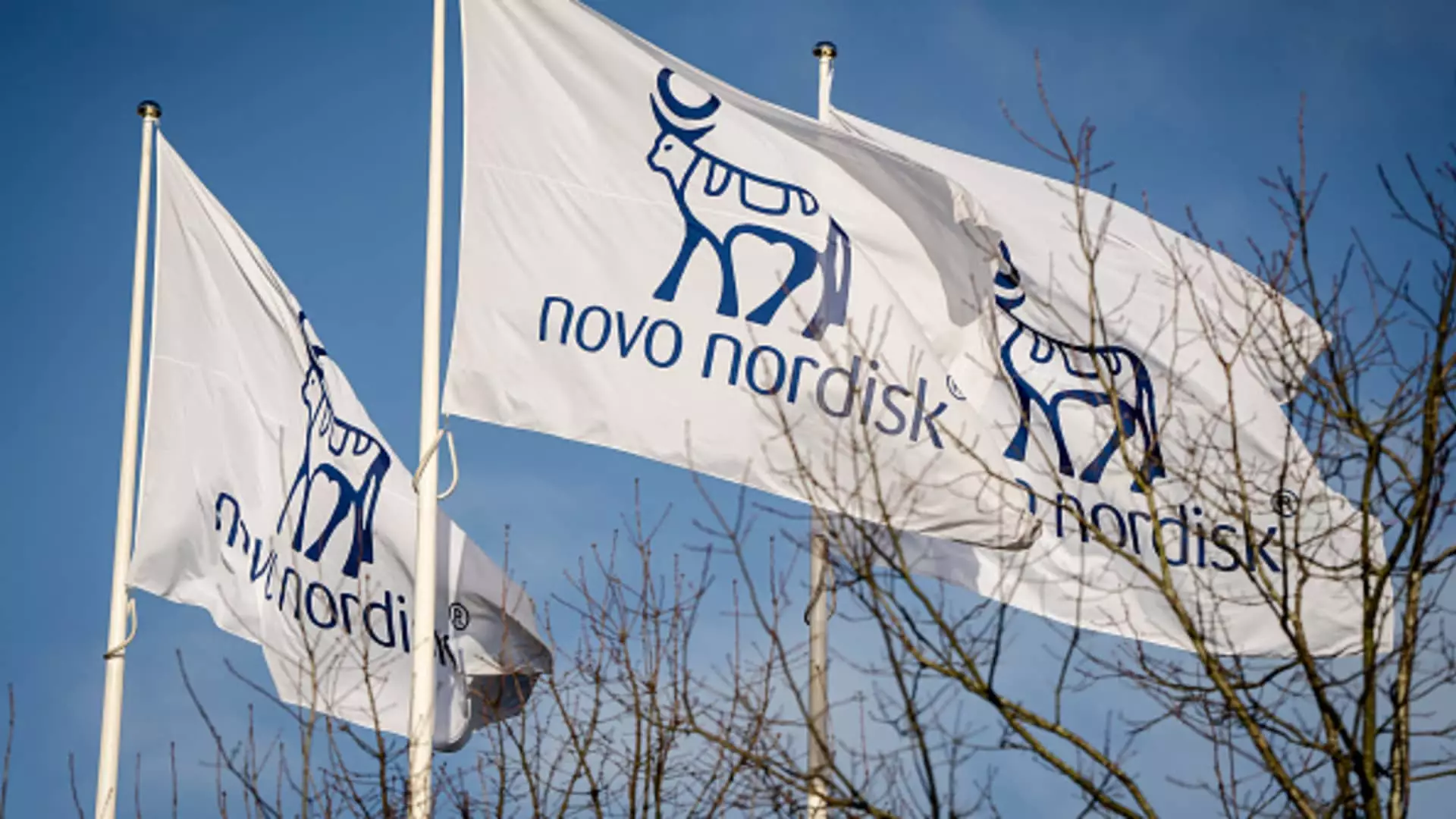Novo Nordisk’s recent announcement regarding its diabetes medication, Rybelsus, is nothing short of groundbreaking. The results from a late-stage trial reveal that this once-daily oral pill not only effectively manages Type 2 diabetes but also significantly lowers the risk of severe cardiovascular events. These findings position Rybelsus as a formidable contender in the crowded landscape of diabetes treatment—particularly among patients battling both diabetes and heart disease. The figures are irrefutable: a remarkable 14% reduction in risks associated with cardiovascular-related death, heart attack, and stroke after an average trial period of four years.
This groundbreaking revelation has massive implications for patient care. Traditional treatments have mostly involved injectable medications, often instilling anxiety in patients who might fear needles. With Rybelsus offering a convenient oral alternative, we may finally bridge the gap for the countless individuals hesitating to address their health merely because of the delivery method.
Understanding the Therapeutic Context
Realistically, though, we must underscore the pivotal role of context in interpreting these findings. The trial included a diverse pool of over 9,600 adults aged 50 and above, many of whom were also on medications like SGLT2 inhibitors—treatments specifically designed to lower blood sugar levels. While the study produced compelling results, critics may argue that the benefits exhibited by Rybelsus must be compared to the multifaceted treatment regimens that patients follow.
Moreover, the data aligns with prior studies on GLP-1 receptor agonists—injectable medications aimed at aiding weight loss and regulating blood sugar. Thus, while the oral formulation expands accessibility, the therapeutic benefits may largely reflect the class of medications rather than the enigmatic properties of Rybelsus alone.
The Cultural Shift Towards Oral Medications
A notable highlight from Novo Nordisk’s presentation is the broader cultural implications of this development. It challenges preconceived notions that chronic disease treatment must always involve injections. In a world increasingly fearful of needles—be it due to pain, aesthetics, or simply the anxiety involved—Rybelsus addresses a pressing need for convenience and patient comfort.
Stephen Gough, Novo Nordisk’s global chief medical officer, aptly noted that many patients desire an alternative to injections. This pivot indicates not just a shift in how diabetes can be managed but a reinvigorated patient-centric approach in the healthcare industry. It encourages dialogue between healthcare providers and patients about what treatment pathways best suit individual lifestyles and preferences.
Competitive Landscape and Future Directions
Interestingly, Novo Nordisk’s strides come amid increasing competition from other pharmaceutical companies like Eli Lilly that are racing to develop their own oral GLP-1 medications. The urgency in this sector signals a burgeoning acknowledgment of the need for oral treatments in managing diabetes and associated conditions.
Rybelsus’s recent advancements may place Novo Nordisk at a competitive advantage, as they have sought early approvals from both the U.S. and EU to expand treatment indications. The results indicate that the drug could soon change the way healthcare professionals approach risk management in patients with diabetes and cardiovascular concerns.
But there are still significant questions to consider: how effectively will Rybelsus integrate alongside existing treatment regimens? Are we witnessing the dawn of a promising new era in glycemic control and cardiovascular health, or are we simply witnessing a rebranding of existing solutions?
The Side Effects and Patient Compliance
It’s essential to discuss the side effects associated with Rybelsus, which predominantly include gastrointestinal issues such as nausea and diarrhea. This factor inadvertently raises concerns about patient compliance. After all, a medication that may promote cardiovascular health is futile if patients find it intolerable.
Yet, the study suggests that such side effects were manageable and did not lead to a significant number of discontinuations among participants. This resilience points to a fascinating dichotomy: many patients may prioritize the palpable benefits of cardiovascular health over the discomfort caused by side effects. As healthcare transforms into a more patient-centric model, understanding individual patients’ tolerance and lifestyle choice becomes increasingly crucial.
Overall, while Rybelsus appears to offer substantial cardiovascular benefits for individuals with diabetes, it remains vital for stakeholders in the healthcare community to weigh the pros and cons carefully while navigating this evolving landscape. The implications of this development could ripple through our healthcare philosophy, experience, and ultimately, patient outcomes.

